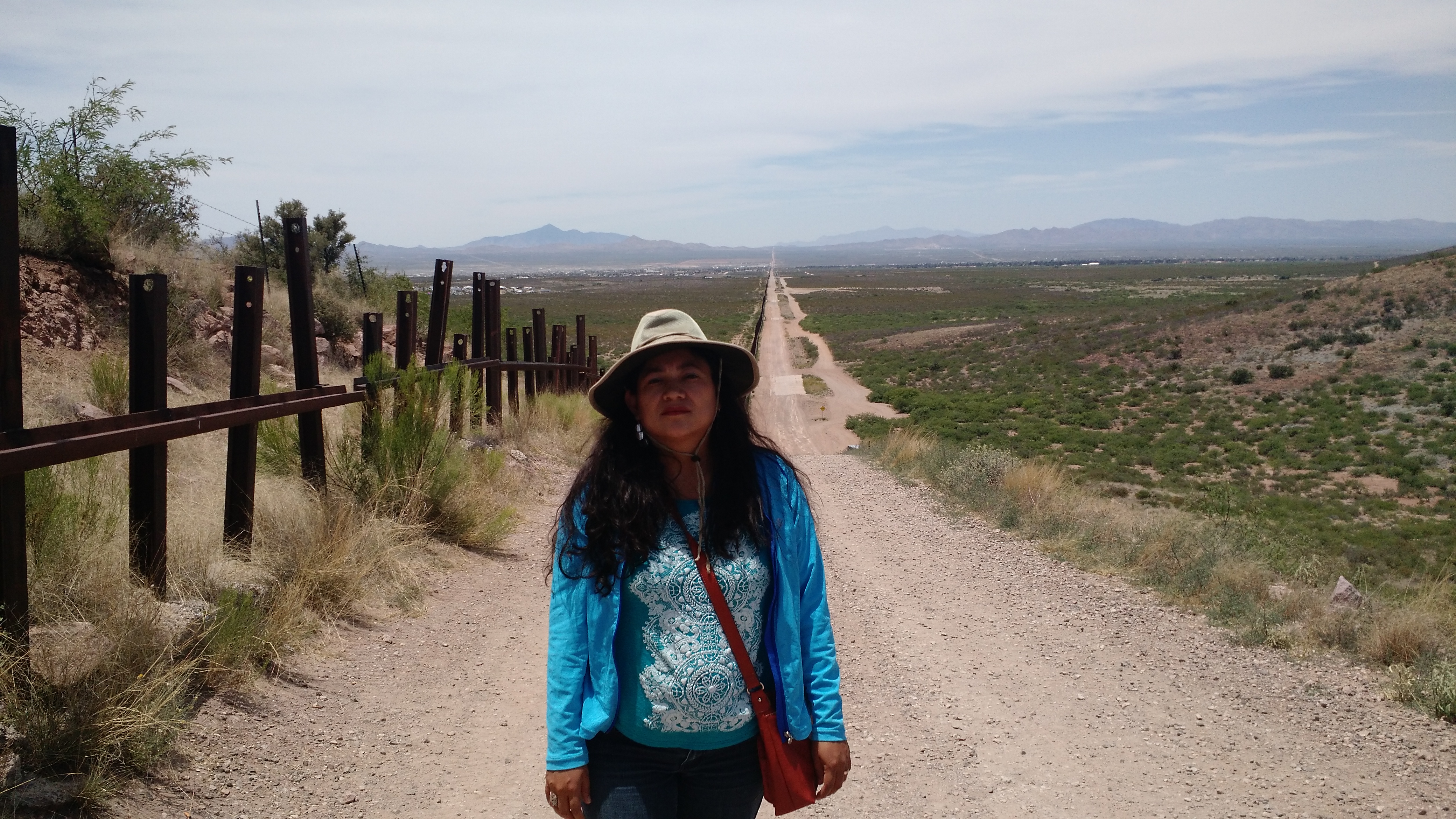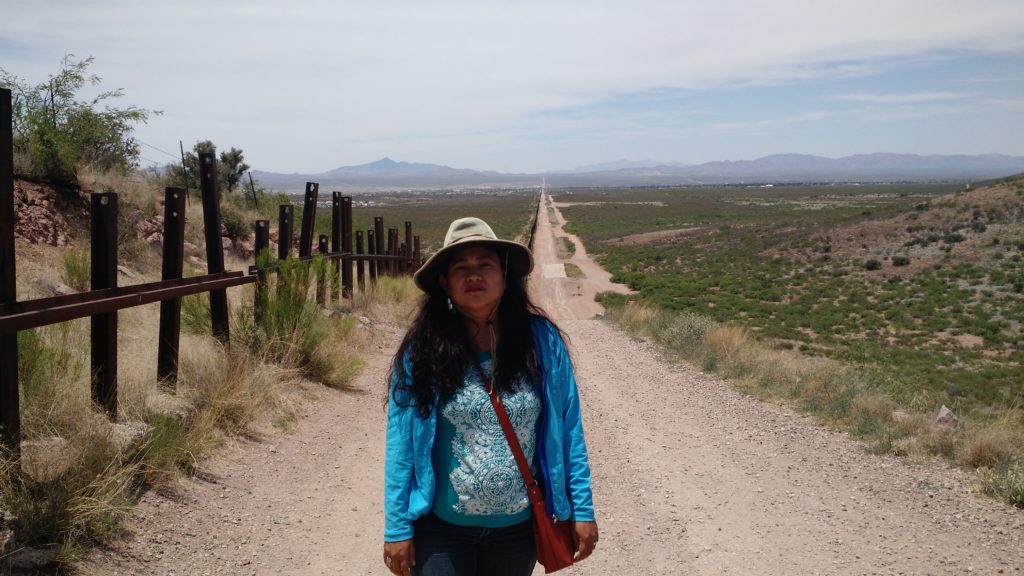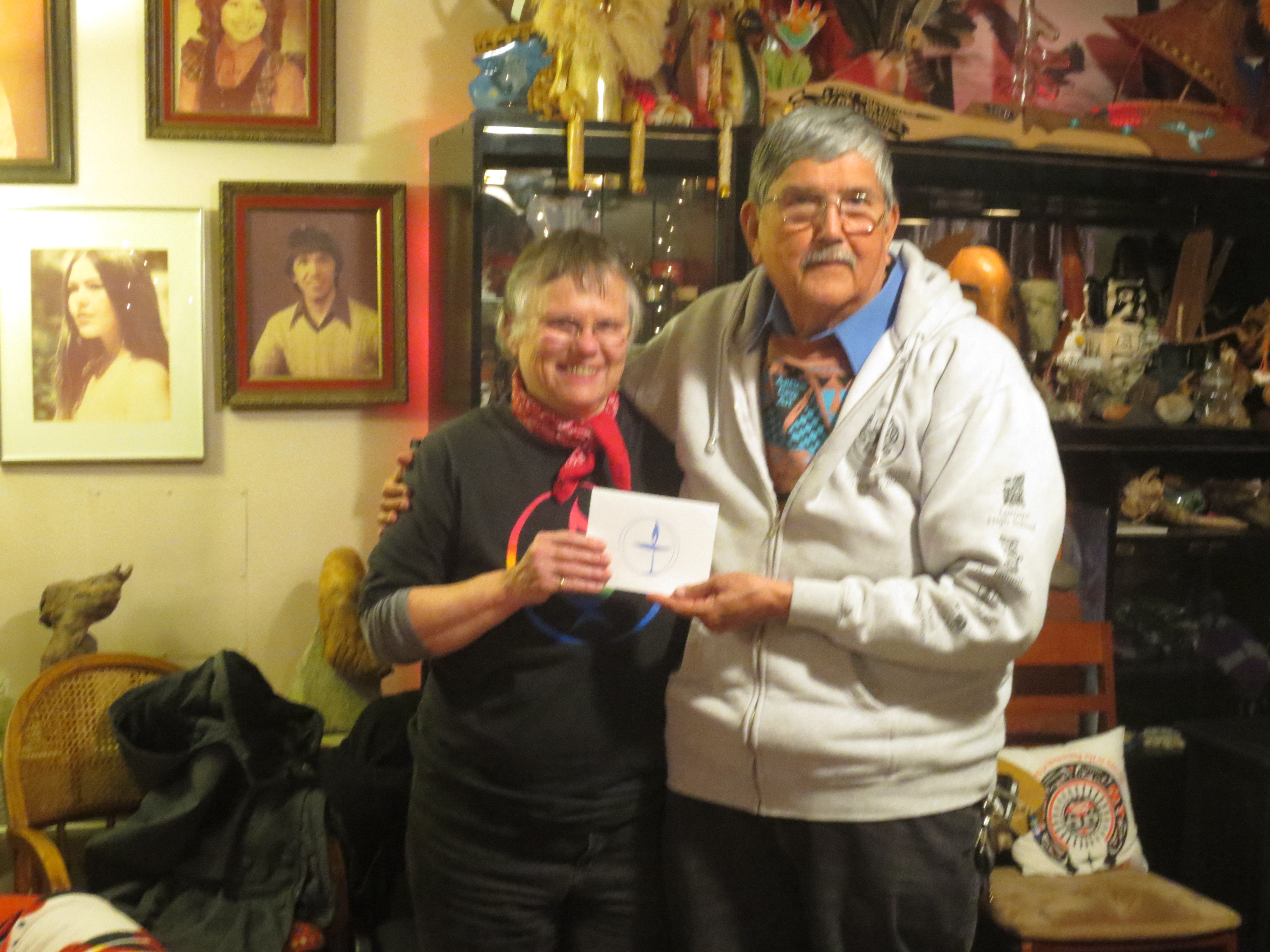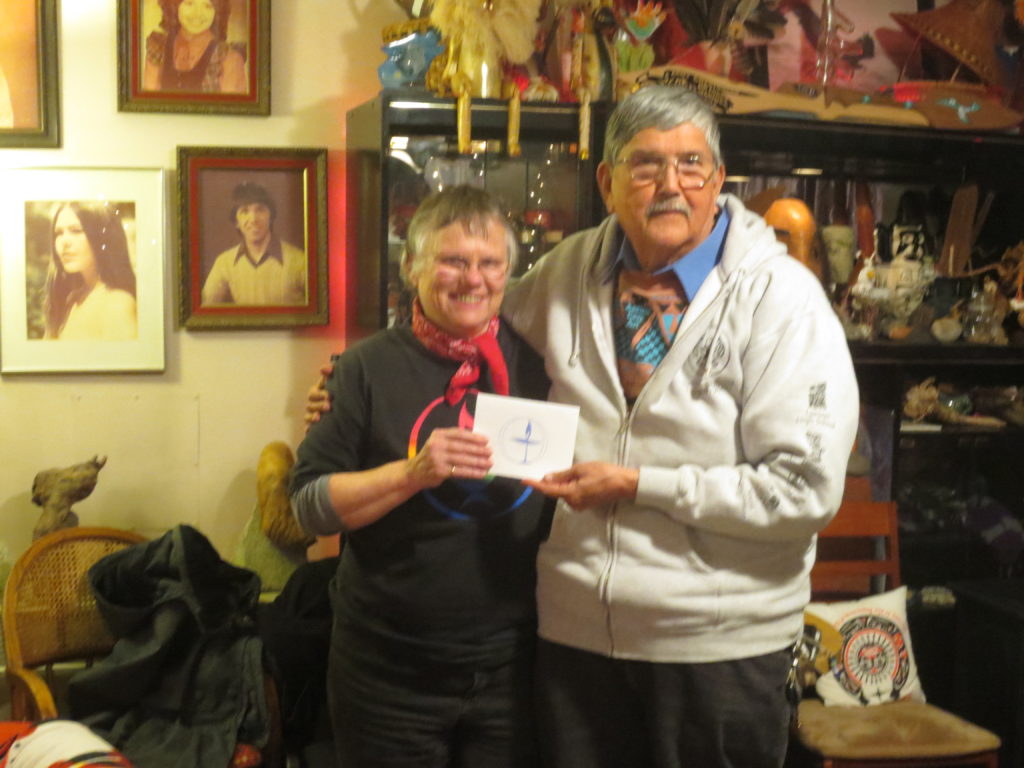
Border Memories
This post was written by Reyna Grande, a participant of the 2015 May Border Justice journey with UUCSJ.
Thirty years ago last month, I crossed the border illegally through Tijuana. At nine years old, I found myself running through the darkness, trying to find a place to hide from the ever-watching eyes of “la migra”. I crossed the border for one reason—to be reunited with my father, whom I hadn’t seen in eight years. I was lucky. I made it on my third attempt, and I began my new life in the U.S. with my father by my side. I went on to become the first in my family to graduate from college. I went on to become an award-winning writer published by Simon & Schuster.
But I never forgot where I came from.
This is why thirty years after my crossing, I decided to go back to the border and experience it through the eyes of an adult. I joined the UU College of Social Justice border delegation and headed to Tucson, Arizona where I met with the others in the group: Jose, Debbie, Marguerite, Briana, Roberta, Ian, and our guide, Emrys.
Early the next day we headed to Douglas, Arizona. The first thing on the agenda was to see the border wall. I’d seen pictures of it, but those pictures didn’t quite prepare me for the experience of actually being there, standing before this huge monstrosity as I pondered on what it represented, on the effect it has had on the people living on either side of it. As the group stood by the wall, we could feel the wind howling through the slats, forcing its way through the wall. Emrys said, “Look, even the wind has a hard time getting through.” Yes, this wall was meant to keep people out, but even the wind had to struggle on its own journey north.
After the border wall, we went to Agua Prieta to visit a women’s co-op and then a co-op of coffee growers called Café Justo. In the evening, we went to a migrant shelter to have dinner with the migrants. This was for me, the part that touched me the most. I had never set foot on a migrant shelter before. As I sat there, eating a dinner of beans, rice, and squash, I looked at the migrants around me. They told us their story, and as we listened I looked at those men’s faces and I thought about my father. He’d been the first migrant in our family. He’d headed north when I was only two years old to pursue a better life for his family. As I looked at those men I couldn’t help but wonder about the families they had left behind, and how much responsibility these migrants carried on their shoulders. Whatever happened to them—there in the border—would seal not just their own fates, but their families’ as well.
The next day, we returned to Agua Prieta to visit the Migrant Resource Center. It was not opened when we arrived, so we waited outside the door. There were a few migrants waiting as well, and I took the opportunity to go talk to one of them. He told me his border crossing had not gone well and he’d decided to return to his home, but he had no money for the bus fare and was hoping the Center would be able to help him. I asked him questions about his home, and he told me about the poverty, the low wages that had driven him north. He said, “I’ve failed, but now when I go home at least I won’t be fantasizing about the U.S. anymore. Now I know the hard reality—that I’m stuck in Mexico, that there’s nowhere to go.”
It saddened me to think of this man returning to his home with broken dreams. It infuriated me because I knew first-hand the poverty he was trying to escape from, and I wished he’d succeeded. Then I felt guilty, too, because I had “made” it. And he hadn’t.
On the second-to-the last day, we teamed up with the organization No More Deaths to do a water drop-off. We carried 16 water jugs and bags up food up a 1.5 mile hike. As we struggled through the bushes, our feet getting covered in dust, I thought about my border crossing. I remembered hiding in the bushes while a helicopter flew above us. I remembered wishing I were invisible. We left the water and food by a dry creek. As we made our way back, I kept thinking about the migrants who walked on that trail. I scanned the bushes and wondered how many of them were out there now. I hoped that when they found the food and water we’d left, their faith would be renewed and they’d find the strength to continue on their journey.
One of the last conversations we had as a group was what steps we would all take to continue our mission to educate people about the border and to help the migrant population. Everyone had different ideas, and I was happy to see that every single one of us was deeply committed to making a difference. I had recently run two successful fundraisers, so upon my return to Los Angeles I launched a fundraiser on behalf of Casa del Migrante. In nine days, I’ve raised over $1,000. There’s still a month left to go and by the end of it, I’ll pay a visit to Casa del Migrante. One thing I learned from the border delegation is that we all have it in our power to do SOMETHING, no matter how small or how little, to help migrants in their journeys: From talking about migrants as human beings instead of statistics, donating to organizations that help migrants, putting pressure on our government to treat migrants with compassion and dignity, to participating in border delegations.
So what will you do today?



